Learning Study
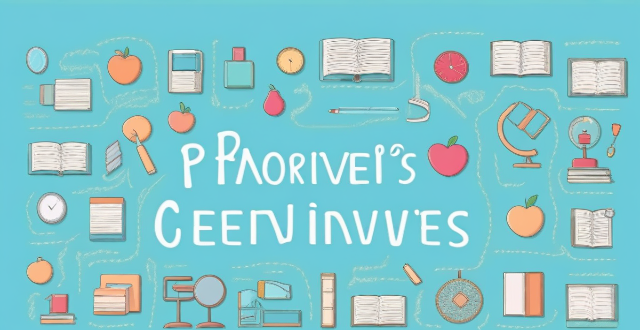
How can I improve my study habits to increase my learning efficiency ?
The text provides a comprehensive guide on how to improve study habits for higher learning efficiency. It suggests developing a consistent study schedule, creating an optimal study environment, using active learning techniques, breaking down study material, employing time management tools, setting clear goals, taking care of oneself, utilizing teaching as a learning tool, seeking help when needed, and reflecting on one's study methods. These strategies aim to enhance focus, concentration, memory retention, understanding, energy, interest, objectives, progress, brain rest, nourishment, knowledge reinforcement, assistance, perspectives, engagement, effectiveness evaluation, and approach adaptation. Consistency and self-reflection are emphasized as key factors in continuous improvement of academic performance.

What are some effective study techniques for learning history ?
Effective study techniques for learning history include understanding chronological order, using visual aids, active reading, group study, practice writing, connecting historical events with the present, using multimedia resources, and visiting museums and historical sites. These methods can help deepen understanding and make the subject more engaging and rewarding.

How can I make the most out of group study sessions ?
Group study sessions can be an incredibly effective way to learn and review material. By pooling knowledge, sharing insights, and engaging in collaborative learning, students can deepen their understanding of complex topics and improve their academic performance. To make the most out of group study sessions, consider the following strategies: ## Setting Clear Objectives - **Establish Goals**: Before diving into a study session, it's important to set clear objectives. Decide what topics or areas you want to cover and what you hope to achieve by the end of the session. - **Create an Agenda**: Prepare a structured agenda that outlines the topics to be discussed and the time allocated for each. This helps keep the study session focused and productive. ## Preparation is Key - **Assign Pre-reading**: Encourage all group members to do some pre-reading or pre-work before the session. This ensures everyone comes prepared with basic knowledge and questions to discuss. - **Bring Materials**: Each participant should bring relevant textbooks, notes, or any other materials that could facilitate the discussion. ## Active Participation - **Engage Actively**: Encourage all members to actively participate by asking questions, sharing insights, and contributing to discussions. - **Take Turns Teaching**: Rotate the role of "teacher" among group members. Research shows that teaching a concept to others reinforces your own understanding. ## Promote Collaboration - **Share Different Perspectives**: Each member may have a unique approach or perspective on the material. Encourage sharing these viewpoints to enrich the discussion. - **Brainstorm Together**: When confronted with challenging problems or concepts, work together to brainstorm solutions. ## Stay Focused - **Minimize Distractions**: Try to minimize distractions during the study session. Put away phones, limit side conversations, and create an environment conducive to learning. - **Stick to the Agenda**: Keep the discussion on track by referring back to the agenda and managing the time spent on each topic. ## Review and Reinforce - **Recap Key Points**: At the end of the session, summarize the key points covered. This helps reinforce learning and provides a quick reference for future studying. - **Assign Follow-up Tasks**: Assign tasks or exercises to be completed before the next session. This keeps the momentum going and ensures continued engagement with the material. ## Evaluate and Reflect - **Reflect on the Process**: Take a few minutes at the end of the session to reflect on what worked well and what could be improved. This helps fine-tune future study sessions. - **Evaluate Learning Outcomes**: Consider assessing your understanding through quizzes or short tests after a series of study sessions to evaluate the effectiveness of the group learning process.

What are some tips for leading a successful study group ?
Leading a successful study group requires careful planning, effective communication, and strong leadership skills. To achieve this, it is important to set clear objectives, organize meetings effectively, encourage active participation, foster collaboration and teamwork, and evaluate progress regularly. By following these tips, you can create a productive and enjoyable learning experience for all members of your study group.

What are the advantages and disadvantages of working in a study group ?
The advantages of working in a study group include improved learning outcomes, enhanced collaboration skills, motivation and accountability, and exposure to diverse perspectives. However, the disadvantages include time management challenges, unequal participation, lack of individual attention, and personality conflicts. To make the most of a study group, it is important to establish clear guidelines, set expectations for participation, and communicate openly with group members about any issues that arise.

What are some effective strategies for improving study habits and motivation ?
Effective strategies for improving study habits and motivation include setting clear goals, creating a study plan, eliminating distractions, using active learning techniques, staying motivated, seeking help when needed, and practicing self-care. These strategies can lead to academic success.

What are some effective study techniques for college students ?
**Effective Study Techniques for College Students:** College students can improve their academic performance by adopting effective study techniques. These include creating a study schedule, finding a suitable study environment, using active learning strategies, breaking information into chunks, practicing retrieval and review, staying organized, collaborating with peers, maintaining a healthy lifestyle, and seeking help when needed. Consistency, minimizing distractions, engaging with the material, chunking information, quizzing oneself, spaced repetition, utilizing note-taking systems and digital tools, participating in study groups, getting enough sleep and exercise, and leveraging academic support services are all crucial elements of successful studying. It's important to experiment and find out which methods work best for individual needs.
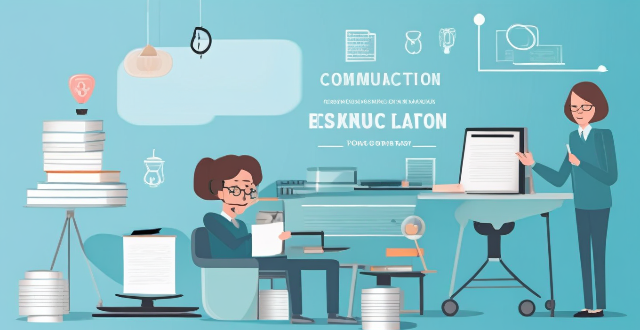
How can I effectively communicate with my study group members ?
Effective communication is essential for the success of any study group. To communicate better with your study group members, set clear objectives, use active listening skills, encourage open discussion, provide constructive feedback, and stay organized. By following these tips, you can work together to achieve your academic goals.

What are the benefits of collaborating in a study group ?
**Benefits of Collaborating in a Study Group** Collaborating in a study group offers numerous benefits to students, including enhanced learning and understanding, improved academic performance, development of valuable skills, and emotional and social benefits. By participating in study groups, students can gain different perspectives, active participation, immediate feedback, better grades, increased retention, preparation for class discussions, communication skills, teamwork and collaboration, critical thinking, time management, reduced anxiety and stress, building friendships, increased motivation, and networking opportunities. Overall, collaborating in a study group is an excellent way to make the most out of your educational journey while building lasting relationships along the way.

How can I stay focused during long study sessions ?
To stay focused during long study sessions, create aTo stay focused during long study sessions, create a by minimizing distractions create a conducive environment by minimizing distractions and optimizing your workspace. Establish a routine with clear objectives and stick to a schedule. Use time management techniques like the Pomodoro technique and prioritize tasks. Stay motivated and engaged by rewarding yourself and mixing up your study methods. Take care of yourself by getting adequate sleep, eating healthy meals, and exercising regularly.

What are some good tools for creating and sharing study materials ?
This article discusses various tools that can be used for creating and sharing study materials. Google Docs, Canva, and Quizlet are some of the best tools for creating study materials, while Dropbox, Padlet, and Edmodo are great for sharing them. These tools offer features like collaboration, accessibility, integration, design, gamification, storage, security, visualization, educational focus, and assessment. By utilizing these tools, students can enhance their learning experience and collaborate with others more efficiently.
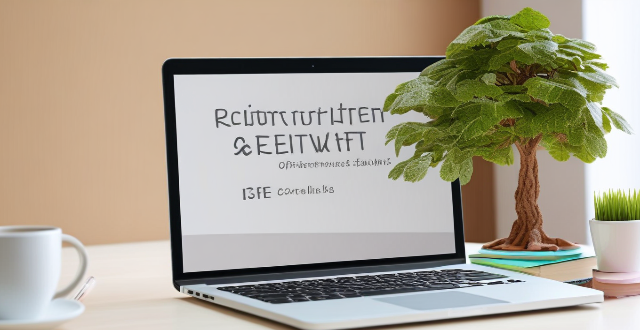
Can you recommend any effective study apps ?
The text provides a topic summary of effective study apps that can help students stay organized, focused, and motivated. The apps include Quizlet, Forest, Evernote, Khan Academy, and Duolingo. Quizlet is a flashcard app with various modes of studying including flashcards, practice tests, and games. Forest helps users stay focused by planting virtual trees while studying. Evernote is a note-taking app that allows users to organize their notes into notebooks and folders. Khan Academy is a free online learning platform that offers video lessons and exercises on a wide range of subjects. Duolingo is a language learning app that uses gamification techniques to keep users engaged and motivated. The text concludes by encouraging readers to try these apps and see which ones work best for them.

How can I handle disagreements or differing opinions in a study group ?
In the text, the author provides a guide on how to handle disagreements in a study group. They suggest listening actively, staying calm and respectful, using "I" statements, finding common ground, compromising, taking breaks, and seeking mediation. The author emphasizes that handling disagreements requires patience, empathy, and effective communication skills. Overall, they argue that learning how to handle disagreements effectively can lead to stronger relationships and better outcomes.

How can I increase my motivation to study ?
Motivation is crucial for success in education, but staying motivated can be challenging. To increase your motivation to study, set clear goals, create a study plan, find a study group or partner, stay positive, and reward yourself for meeting goals.

What are the best online learning tools for students ?
Online learning tools have become essential for students in recent years. These tools offer a wide range of courses and resources to help students improve their academic performance and explore new subjects. Some of the best online learning tools for students include Khan Academy, Duolingo, Quizlet, Coursera, EdX, and Udemy. These platforms provide interactive exercises, language-learning courses, study materials, high-quality educational content, and skill-building courses. By utilizing these online learning tools, students can enhance their education and achieve success in their chosen fields.

How can parents encourage and support their children's academic motivation ?
Academic motivation is a crucial factor in a child's educational journey. Here are some tips on how parents can encourage and support their children's academic motivation: 1. Set goals and expectations by discussing interests and strengths, creating a plan, and providing regular feedback. 2. Create a conducive learning environment by providing a quiet study space, minimizing distractions, and encouraging breaks and physical activity. 3. Offer encouragement and praise by acknowledging efforts and achievements, praising hard work and dedication, and celebrating successes. 4. Be involved in their education by attending parent-teacher conferences, showing interest in their studies, and helping with homework when needed. 5. Model good study habits by demonstrating a positive attitude towards learning, practicing time management and organization skills, and showing perseverance and resilience when faced with challenges.

How can I stay motivated while using online learning resources ?
To stay motivated while using online learning resources, oneTo stay motivated while using online learning resources, one create a study plan, find By following these tips, one can make the most of their online learning experience and achieve their desired outcomes.

What are some tips for learning a new language on a tight schedule ?
The text provides tips for learning a new language on a tight schedule. It emphasizes the importance of setting realistic goals, prioritizing study time, incorporating language learning into daily routines, and practicing speaking and writing. The author suggests starting small, tracking progress, being consistent, scheduling study time, minimizing distractions, making use of short breaks, changing device settings to the target language, listening to music or podcasts in the target language, watching TV shows and movies with subtitles, finding a language exchange partner, joining online language groups, and using language learning apps. Overall, the text encourages readers to be dedicated, consistent, and creative in their language learning journey despite having limited time.

What are some benefits of using online learning resources compared to traditional classroom learning ?
Online learning resources offer advantages over traditional classroom learning, including flexibility and convenience, cost savings, personalized learning experiences, exposure to diverse cultures, and development of technology skills.

How can I ensure equal participation from all members in a study group ?
Ensuring equal participation in a study group is crucial for its success. Here's a summary of strategies to encourage active involvement from all members: 1. **Set Clear Expectations**: Establish guidelines for attendance, engagement, and task completion at the start. 2. **Assign Roles and Responsibilities**: Give each member a specific job to ensure they have an active role. 3. **Encourage Open Communication**: Create a safe space where everyone can share their thoughts without interruptions. 4. **Use Icebreakers and Group Activities**: These help build rapport and encourage shy members to participate. 5. **Provide Feedback and Recognition**: Regularly acknowledge contributions and offer constructive feedback to foster improvement. By implementing these strategies, you can create an inclusive environment that values each member's input, ensuring a productive and enriching study group experience for all.

Why do some people always like to learn secretly and deceive you? What kind of defensive psychology is this?
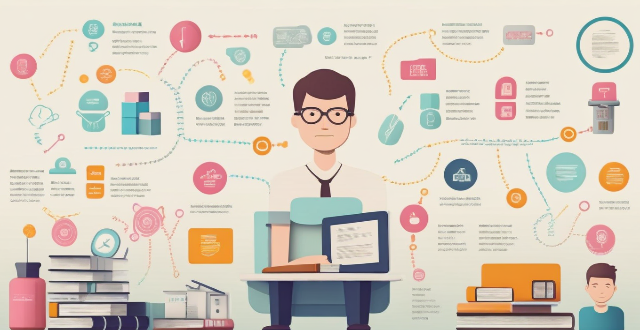
What are the benefits of using a remote education platform for learning ?
Using a remote education platform for learning offers numerous benefits that enhance the overall learning experience, including flexibility and convenience, personalized learning, collaboration opportunities, cost savings, access to quality education, improved learning outcomes, and environmental sustainability.

What are some benefits of using flashcards for language learning ?
Flashcards are an effective tool for language learning that can be used to enhance vocabulary acquisition, reinforce grammar rules, and improve pronunciation. Here are some benefits of using flashcards for language learning: 1. Repetition and Memorization: Flashcards allow learners to repeatedly review vocabulary words and phrases, which helps to reinforce memory and retention. By consistently reviewing flashcards, learners can memorize new words and phrases more quickly and efficiently. 2. Portability and Convenience: Flashcards are small and lightweight, making them easy to carry around and study on the go. They can be studied at any time, whether during a break at work or while waiting in line at the store. 3. Customizable and Personalized: Learners can create their own flashcards with specific vocabulary words and phrases that they need to focus on. Flashcards can be tailored to each individual's learning style and goals, allowing for a more personalized learning experience. 4. Active Learning and Engagement: Flashcards require active participation from the learner, promoting engagement and motivation. The interactive nature of flashcards keeps learners engaged and interested in the learning process. 5. Versatility and Adaptability: Flashcards can be used for various aspects of language learning, including vocabulary, grammar, and pronunciation. They can be adapted to different levels of proficiency, making them suitable for both beginners and advanced learners. 6. Cost-Effective and Accessible: Flashcards are an affordable alternative to expensive language learning resources such as textbooks and software programs. They are widely available in print form or digital formats, making them accessible to anyone with internet access or a printer. In conclusion, using flashcards for language learning offers numerous benefits, including repetition and memorization, portability and convenience, customization and personalization, active learning and engagement, versatility and adaptability, and cost-effectiveness and accessibility. By incorporating flashcards into your language learning routine, you can enhance your vocabulary acquisition, reinforce grammar rules, and improve your overall language skills.

What are the challenges faced by adult learners in the process of lifelong learning ?
The text discusses the challenges faced by adult learners in the process of lifelong learning, including time constraints, lack of motivation, access to resources, technology barriers, and cognitive abilities. It provides solutions to overcome these challenges such as prioritizing time, setting clear goals, exploring resource options, staying informed about technology trends, and adopting effective study strategies. The text emphasizes the importance of lifelong learning for personal and professional development and adapting to a rapidly changing world.

How do I create an effective study plan ?
Creating an effective study plan is crucial for academic success. Here are some steps to help you create a successful study plan: 1. Set clear goals that are specific, measurable, achievable, relevant, and time-bound (SMART). 2. Assess your time and determine how much you can realistically dedicate to studying each day/week. 3. Allocate time for each subject based on difficulty level and proficiency. 4. Create a schedule using a calendar or planner and stick to it as much as possible. 5. Incorporate short breaks during study sessions to avoid burnout and maintain focus. 6. Regularly review progress and adjust the study plan accordingly. 7. Eliminate distractions by finding a quiet place to study and turning off unnecessary devices. 8. Stay motivated by reminding yourself of goals and celebrating small achievements. 9. Seek help when needed from teachers, tutors, or classmates. By following these steps, you can create an effective study plan that will help you achieve academic success while managing your time efficiently. Remember to stay flexible and adjust your plan as needed to accommodate changes in your schedule or priorities.
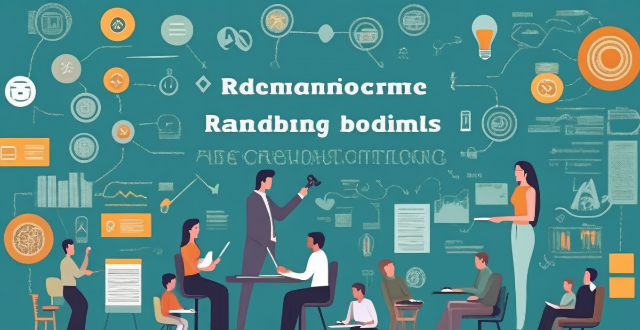
Can language learning apps replace the need for a tutor or teacher ?
In recent years, language learning apps have become popular for their convenience and affordability. While they offer personalized lessons and gamified experiences, these apps cannot fully replace the role of tutors or teachers due to limitations in personal interaction, cultural context, and speaking practice. Tutors can provide customized feedback, real-life conversations, and motivation that apps lack. Therefore, a combination of both methods is recommended for a comprehensive language learning experience.

How can I encourage active engagement in a study group ?
This article discusses strategies for encouraging active engagement in a study group, including setting clear goals and objectives, fostering a collaborative environment, assigning roles and responsibilities, providing opportunities for feedback and reflection, using technology to facilitate engagement, and offering incentives for participation. The author emphasizes the importance of active engagement for the success of a study group and encourages readers to make it a priority from the start.